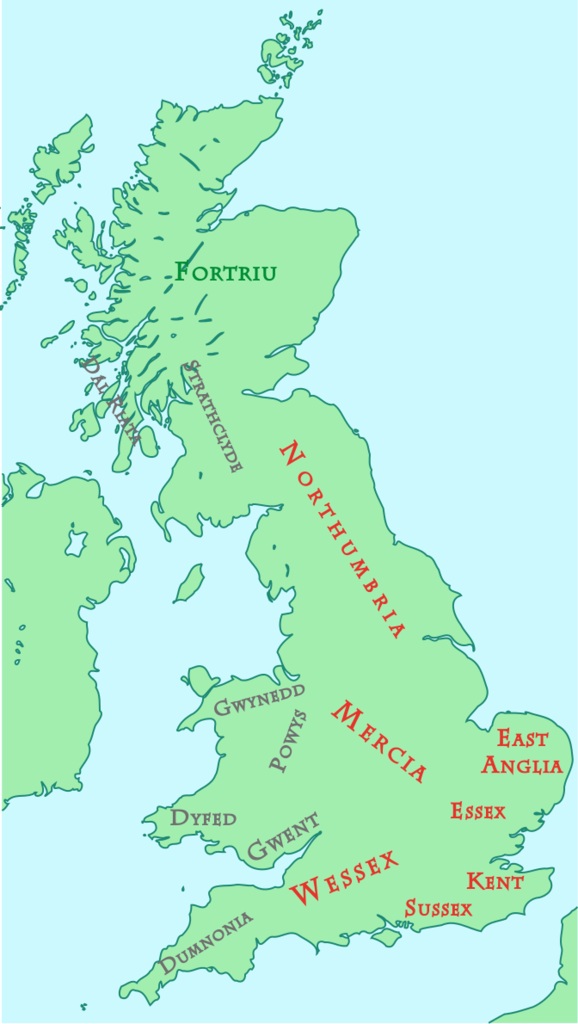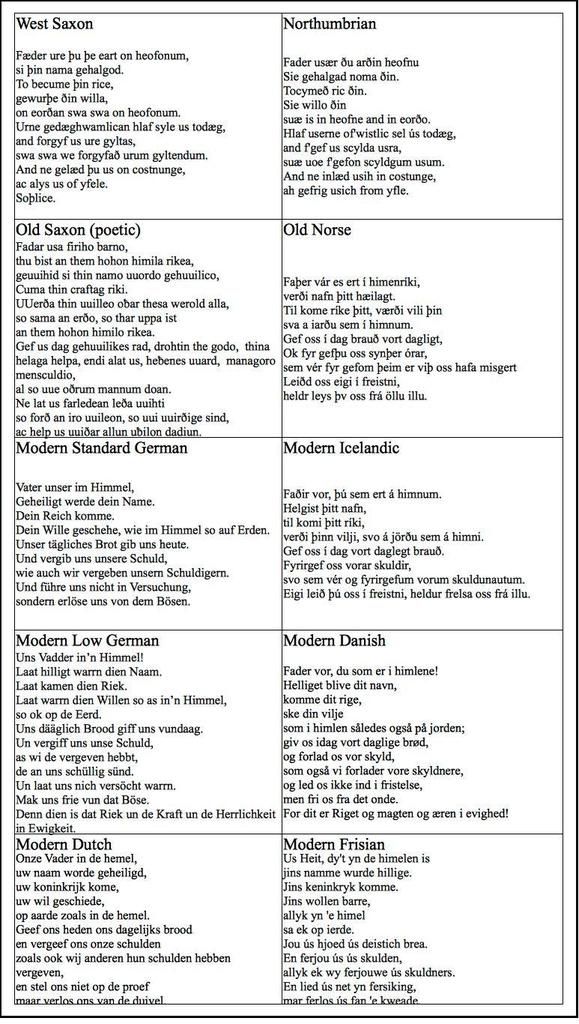In this episode we introduce the language and learn how different, yet similar, Old English sounds. This is part one of a 3 part "Intro" section designed to get you used to the sound and basic features of the language.
Check out this episode!
Here is a link to the Introductory Presentation mentioned in this episode.
Extras
I didn't feel like wasting this space by throwing up my show script, so instead, this bit of random anglo-saxon and germanic language information is here to further our understanding of the people we're talking about, as well as where Old English sits in the greater Germanic Language Family.
Anglo Saxon Kingdoms
- Northumbria comprises the former kingdoms of Bernicia and Deira, and was the center for early Old English literary creativity.
- Mercia spoke an Anglian dialect (as did Northumbria) that was very common up until the Viking establishment of the Dane law region in the 9th century.
- West Saxon is the main dialect that is read both due to it's numerous serving works, and the high culture that was established in the region after the unification of King Alfred.
- Very little of the Kentish dialect survives, mostly pieces of legal documents, and lists of names.
Practice Sentences for Pronunciation
Hē went to Rōme late in līfe.
Se horn sang hlūde on þæt scip.
Hwæt is þis? And þæt?
Þēos is sēo cwēne.
Ælfrīc munuc grēt Æðelwærd ealdormann ēadmōdlīce.
Wē libbe in Ængla Lande.
Hwæt selþ hē þē?
For a guide to the pronunciation in written form, see the Pronunciation Guide above.
Comparisons
One of the best ways to learn about a language is to compare it to other closely related languages. Here I've included several translations of The Lord's Prayer for a comparison.
The standard Modern English version is:
Our Father in heaven,
hallowed be your name.
If you pay attention, you can almost make out the meanings of most of these from comparing the Old English and Modern English.



I have been getting a lot of useful and informative material in your website. http://ow.ly/YqrTe
ReplyDeleteThis comment has been removed by a blog administrator.
ReplyDeleteI, too, was hoping to listen but the files are missing or unavailable. Please bring them back!
ReplyDelete